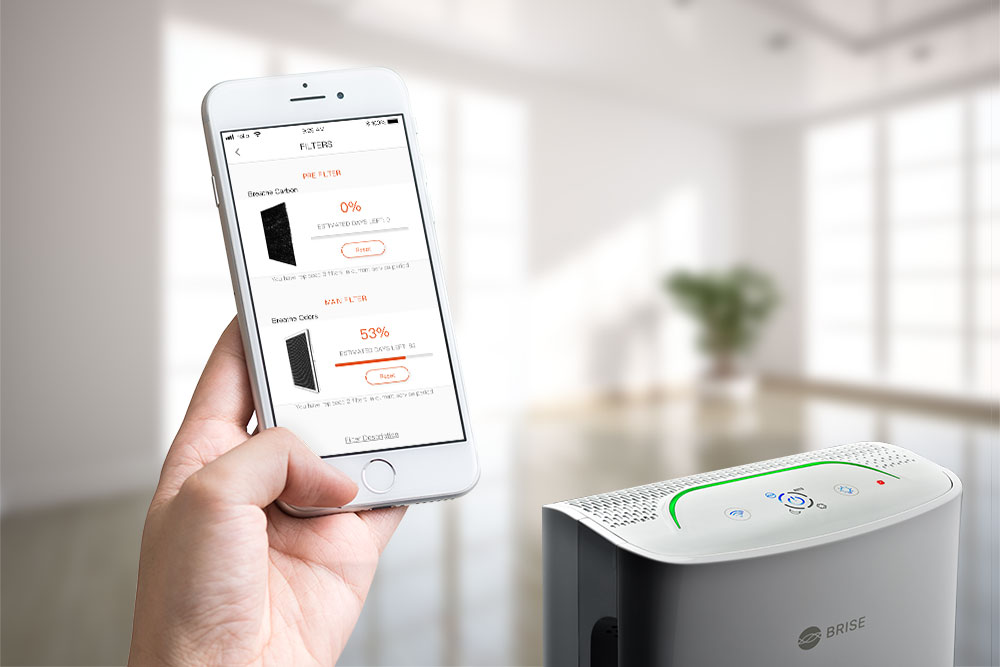- 2021-02-16
How often should I replace the filter?

This is the most frequently asked question from customers. You should, of course, think about this before deciding to buy a device as it is strongly linked to long-term costs.
Most air purifiers simply use the time counting method, for example: for three months, for six months. However, this method does not take everyone’s personal situation into account. The Jansen family with two adults, two children and two dogs, for example, has to replace the filters earlier than the Charlotte family with two adults. The disadvantages of this traditional system are:
- Jansen family unknowingly runs a health risk due to (too) late filter replacement.
- The Charlotte family wastes money by changing the filter too early.
- You forget to write down the date of installation, or to replace the filter in time.
The HEPASmart filter management system from Brise Care is the latest innovative system, which completely overcame all those drawbacks and even offers additional benefits. This unique system calculates the filter life dynamically, based on your personal lifestyle and the continuous monitoring of your living environment. Because it takes these important factors into account, you are informed in real time about the use of filters and you are automatically reminded to replace the filter on time, neither too late nor too early. The system can even advise you which type of filter is suitable for your home situation.
Read more about “How important is the right time to replace filter ? “
However, the estimated average life is:
For air purifier C200:
Carbon pre-filter: 03 months
Combo main-filter: 08 months
For air purifier C360:
Carbon pre-filter: 03 months
Odors main-filter: 12 months
Please note that this estimated life time is based on the unit being ON 24/7 in a home with two adults. Depending on everyone’s situation, the filter’s operating time can be longer or shorter, but we are sure that not a penny is wasted.
There are other types of air filtration systems, such as with ionization or electrostatic deposition, where no filter replacement is required. Well, we don’t recommend such a system for home use. With those systems, instead of replacing it with a new filter, you ‘wash’ the filter, for economic reasons only. Dust and ultra-fine particles are so small that they are difficult to see with the naked eye. So how can you be sure that the filter is really washed clean, and without secondary pollution?